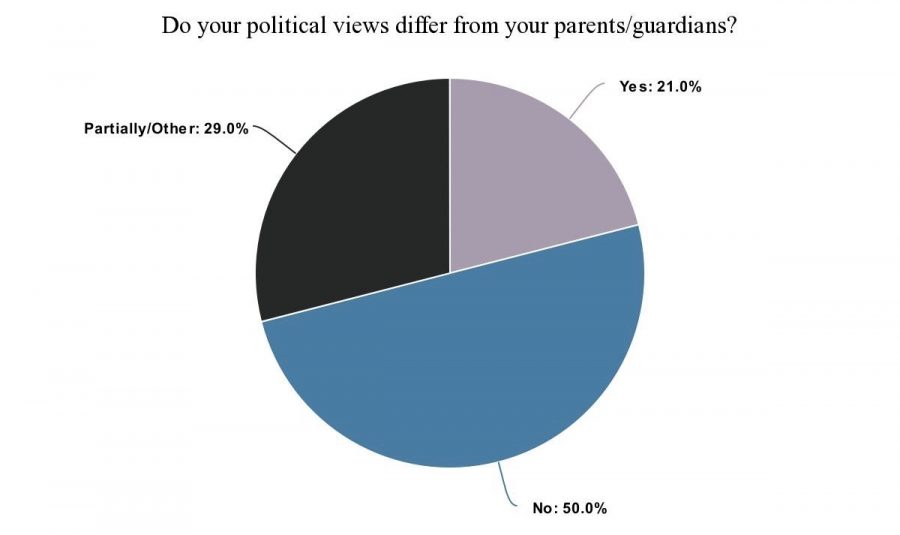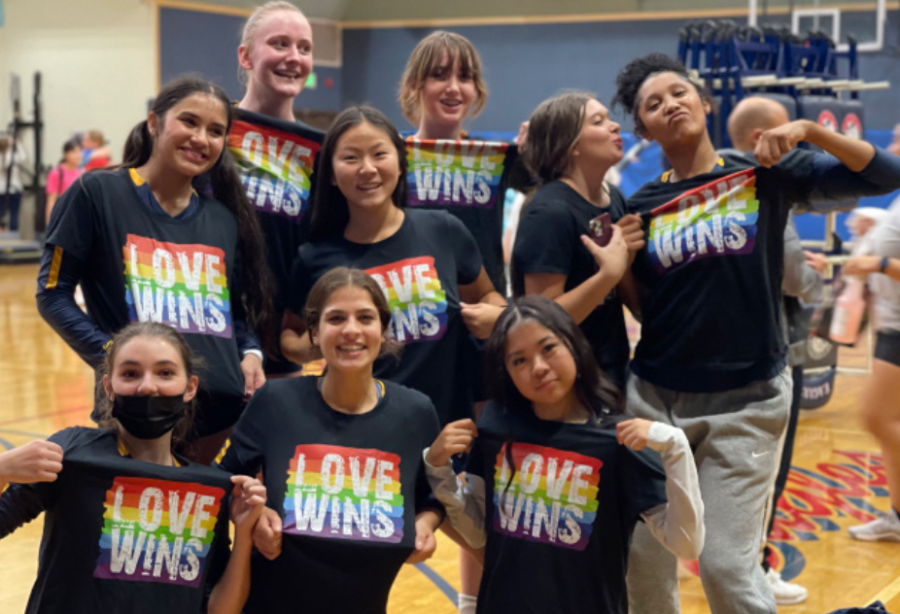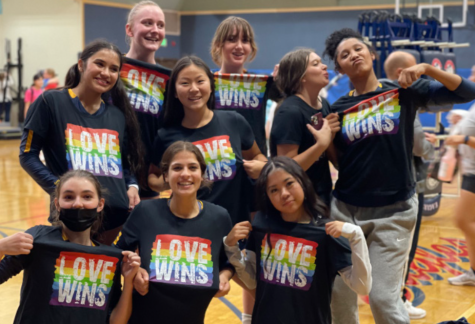Politics in Family: Does the Apple Fall Far from the Tree?
November 2, 2020
Politics in Family
Political conversations among family members can easily turn uncomfortable or escalate quickly in a time of such polarizing views in American politics.
While children are influenced by their parents and their upbringing, many may not take after the politics in their family. Because of generational differences and the change between high school and college life and a career, students receive different information and are more distanced from their parents’ ways of thinking. Only 50% of surveyed Annie Wright Upper Schoolers said they had similar political beliefs to their parents.
Sophomore Erin Picken came to align with her parent’s politics through their values and morals, rather than being directly told about specific viewpoints.
“I didn’t really talk to my parents about politics before ~January of this year,” said Picken. “I don’t think that they influenced [my views] directly in a large way, but I think that the way they taught me about empathy indirectly influenced my political beliefs. For example, they made sure that I was actively listening to people’s opinions.”
On the other hand, Upper School for Girls senior Lauren Christenson’s experience with family politics is similar to the other 50% of Upper School students whose political beliefs don’t align or are partially different from their parents/guardians. For Christenson, her perspective on LGBTQIA+ rights and immigration lean left and liberal compared to her parents.

“I have to fight for my friendships,” said Christenson of her parents. “Because they are not a fan of the LGBTQIA+ community and a majority of my friends are a part of that community and it’s rather difficult to get their ‘approval’ of my friends.”
Christenson finds it difficult to lead constructive conversations with her parents. While she agrees with her parents’ beliefs in some areas, she often wishes she could explain her own political ideas to her parents better.
“It’s their opinion so they’re not going to understand my point of view or how I feel about certain things but it’d be pretty nice if they would” she said.
How to have a constructive conversation about politics with family members
-
Approach them with respect for their views and how they perceive politics (they are family at the end of the day)
-
Don’t try to speak over them or invalidate their points
-
Raising voices will add fuel to the fire
-
Listen, listen, listen; you may not like what they say but hear them out the way you wish to be heard
-
Try to end on a positive note (hopefully no door slams)
This piece was originally published in Inkwell’s 2020 Election Print Issue.










